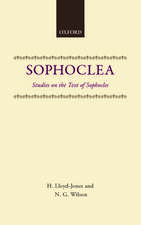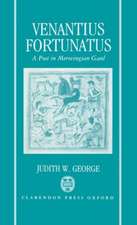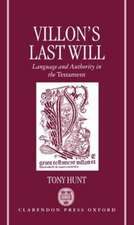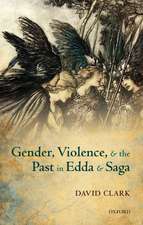Conflicting Femininities in Medieval German Literature
Autor Karina Marie Ashen Limba Engleză Paperback – 15 noi 2016
| Toate formatele și edițiile | Preț | Express |
|---|---|---|
| Paperback (1) | 469.34 lei 6-8 săpt. | |
| Taylor & Francis – 15 noi 2016 | 469.34 lei 6-8 săpt. | |
| Hardback (1) | 1060.25 lei 6-8 săpt. | |
| Taylor & Francis – 14 noi 2012 | 1060.25 lei 6-8 săpt. |
Preț: 469.34 lei
Nou
Puncte Express: 704
Preț estimativ în valută:
89.81€ • 93.77$ • 74.33£
89.81€ • 93.77$ • 74.33£
Carte tipărită la comandă
Livrare economică 05-19 aprilie
Preluare comenzi: 021 569.72.76
Specificații
ISBN-13: 9781138267039
ISBN-10: 1138267031
Pagini: 264
Dimensiuni: 156 x 234 mm
Greutate: 0.45 kg
Ediția:1
Editura: Taylor & Francis
Colecția Routledge
Locul publicării:Oxford, United Kingdom
ISBN-10: 1138267031
Pagini: 264
Dimensiuni: 156 x 234 mm
Greutate: 0.45 kg
Ediția:1
Editura: Taylor & Francis
Colecția Routledge
Locul publicării:Oxford, United Kingdom
Notă biografică
Karina Marie Ash received her Ph.D. in Germanic Languages from the University of California in Los Angeles. She is currently teaching medieval German language and literature courses at Ludwig-Maximilians-Universität Munich.
Recenzii
'... this book offers a wealth of material and, as reflected in the title, explores models of femininity presented in medieval German literature of (mostly) the thirteenth century. ... those interested in gender issues in the Middle Ages will find much of value in Ash's book.' The Medieval Review
Cuprins
Introduction; Chapter 1 How Do You Solve a Problem Like Maria? The Virgin Mary in Priester Wernher’s Maria; Chapter 2 Like the Virgin: Diu Vrouwe in Hartmann von Aue’s Gregorius; Chapter 3 Like a Virgin: Diu Maget in Hartmann von Aue’s Der arme Heinrich; Chapter 4 Oh My Man, I Love Him So: Kriemhild in Das Nibelungenlied and Diu Klage; Chapter 5 Pastoral Persuasion and Mystic Rebellion in the Thirteenth Century; Chapter 6 The Champion of Profane Love: Herzeloyde in Wolfram von Eschenbach’s Parzival; Chapter 7 A Martyr for Profane Love: Sigune in Wolfram von Eschenbach’s Parzival; Chapter 8 The Saint of Profane Love: Giburc in Wolfram von Eschenbach’s Willehalm; Chapter 9 Turning the Saint into a Lady: St. Elisabeth in Thirteenth-Century Vitae; Chapter 10 Once I Had a Secret Love: The Ideal Wife in Wigalois and Die Gute Frau; Chapter 11 Keeping Female Religiosity a Secret in Der welsche Gast and Das Frauenbuch; Chapter 12 Taming the Champion: Herzeloude in Albrecht’s Jüngerer Titurel; Chapter 13 From Martyr to Maiden: Sigun in Jüngerer Titurel; Chapter 14 Separating the Saint from the Lady: Arabel in Ulrich von dem Türlin’s Arabel and Kyburg in Ulrich von Turheim’s Rennewart; conclusion Conclusion;
Descriere
Conflicting Femininities in Medieval German Literature illuminates anxieties about women's roles in society in light of lay religious movements during the High Middle Ages and explains how these anxieties are uniquely addressed in medieval German epics, legends, pastoral works, romances, saints' lives and sermons.

















